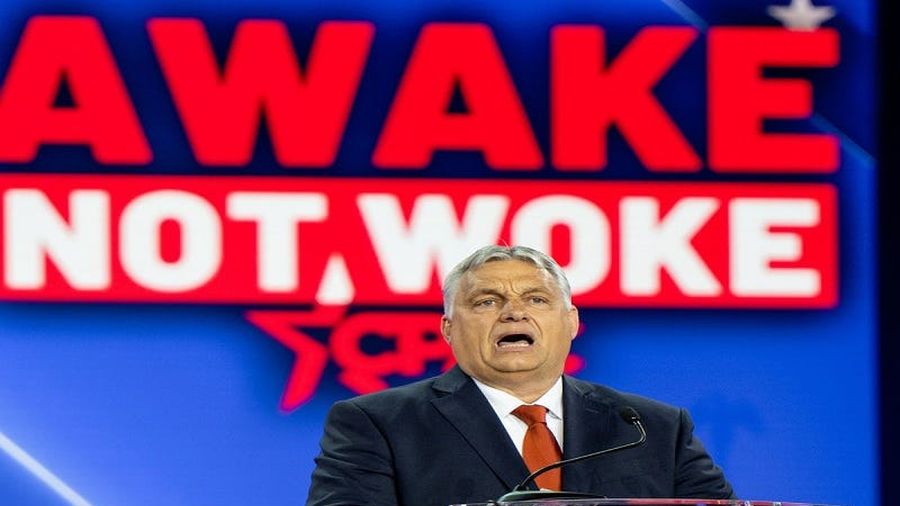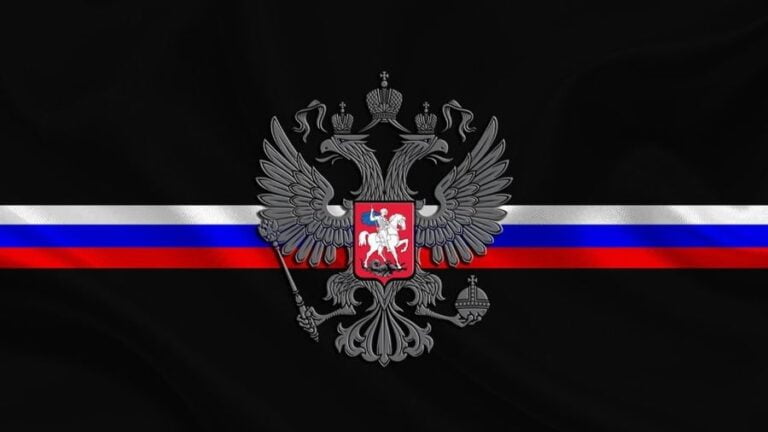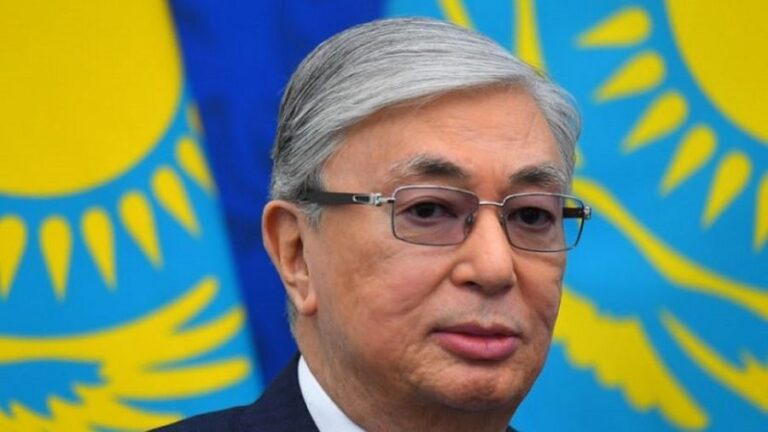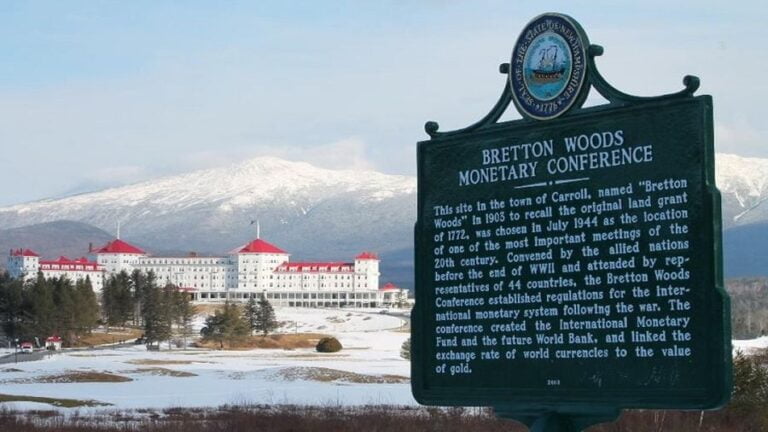Viktor Orban Envisions Leading The West’s Conservative Counterrevolution
What Orban has done is draw attention to that which practically no Western leader or their perception management proxies dares to talk about, which is the undeclared ideological civil war that’s raging within their civilization between liberal-globalist members of the establishment and conservative-sovereigntist populists.
Hungarian Prime Minister Viktor Orban addressed this year’s Conservative Political Action Conference (CPAC) in Texas with a riveting speech aimed at inspiring them to unite with fellow conservatives across the West in leading their side’s counterrevolution against the liberal-globalists that have seized control over their civilization in recent decades. His remarks have been grossly misreported by the US-led Western Mainstream Media (MSM), but that was to be expected since liberal-globalists dominate these institutions. The purpose of the present piece is therefore to highlight the main points of Orban’s speech and then share an analysis about everything that he said in terms of the larger global context.
The Central European leader opened by introducing his country as a centuries-long fighter for Christianity and he himself as an “Anti-Communist, old-fashioned freedom fighter”. He then mocked the MSM’s false depiction of him as a “Far-right European racist and anti-Semite strongman, the Trojan horse of Putin” before reminding everyone that he has a zero-tolerance policy on racism and anti-Semitism. Orban then said that while he respects the government that’s hosting him, he won’t stay silent in the face of the ideological pressure that it’s put Hungary under, which began when the Obama Administration tried to coerce it into removing Christian and national values from its Constitution.
He then very strongly implied that the US’ former administration as well as its incumbent one are both communist at their core in terms of what he understands this ideology as being (which actual communists would object to) by declaring that “If somebody has doubts whether progressive liberals and communists are the same, just ask us, Hungarians. We fought them both, and I can tell you: they are the same.” Because “[Hungary] keep[s] winning, winning, winning” since 2010 against these ideological forces, Orban proposed joining forces with American conservatives in order to show them how it’s done. After sharing some general advice about never giving up, he then offered some detailed suggestions.
The first step, the Hungarian premier said, is “to trust our Judeo-Christian teachings.” He warned that the liberal-globalists’ efforts “to separate Western Civilization from its Christian roots” risks repeating “the worst things in history”. According to him, “the most evil things in modern history were carried out by people who hated Christianity”, after which he launched into a full-fledged attack against fellow compatriot George Soros who Orban described as “[having] an army at his service: money, NGOs, universities, research institutions and half the bureaucracy in Brussels.” The Hungarian leader then accused his rival of wanting to build a “Post Western world” that he implied could provoke a world war.
His second piece of advice is to “Play by your own rules”. Orban elaborated by adding that “We cannot fight successfully by liberal means because our opponents use liberal institutions, concept, and language to disguise their Marxist and hegemonist plans”, which is why conservatives should focus on the culture war instead. He shared Hungary’s experience of being “an old, proud but David-sized nation standing alone against the Woke Globalist Goliath”, but noted how his country defeated that giant by holding referenda to prove the population’s support for the government’s policies against illegal migration, which succeeded in stopping an invasion force almost three times the size of Genghis Khan’s.
Orban then ominously warned that “[the EU] want[s] us to give up our zero-migration policy, because they also know that this is the decisive and final battle of the future”, which hints at the sinister ideological motives of the bloc’s liberal-globalists to replace the traditional basis of Western civilization. The Central European leader then moved along to his third suggestion, which is to place the concept of family at the center of policy planning, to which end he described his government’s efforts in this respect such as giving more subsidies to families for each additional child that they have. The fruits of this policy have resulted in marriages doubling and abortions halving over the past decade, he said.
The fourth step that Orban suggested that all conservatives follow is to build a legal wall around children to complement the physical wall against illegal immigration and the financial wall for supporting families in order to protect them from the pernicious influence of so-called “gender ideology”. Just like with the first-mentioned wall, he said that his government held a referendum on whether parents want their children to be taught sexual orientation programs in schools without their consent, which he said resulted in the largest rejection in his country’s democratic history. To ensure everyone’s rights, the Hungarian Constitution now explicitly defines the family as well as protects Christianity and the nation.
His penultimate proposal to his fellow travelers across the world is to never compromise on law and order otherwise their countries will descend into chaos. In his words, “We decided we don’t need more genders; we need more rangers. Less drag queens, and more Chuck Norris. We believe there is no freedom without order. If there is no order, you get chaos.” Orban then described his country’s law enforcement agencies as “the guardians of freedom”, not “people’s enemies” like they are in other countries. For this reason, Hungary is the safest country in Europe and its premier proudly bragged about how his people want the government to fund the police even more than they already are.
The final suggestion that Orban shared with his audience is for them to focus on lowering taxes in order to attract investments and help the middle class. He then shared some statistics about how successful this has been in the Hungarian case while lamenting that the US scrapped its tax deal with his country despite curiously retaining the one that it has with Russia in spite of those two Great Powers’ present tensions. On the topic of that country, Orban briefly said that while he can’t tell the US what to do, it’s his view that only talks between those two rivals will succeed in ending the Ukrainian Conflict but that this first requires strong leadership from the American side in order to happen.
The Hungarian Prime Minister’s closing words were a dire warning that the West now finds itself at war with itself after having successfully won its prior ideological wars against Nazi Germany and the Soviet Union. He then urged everyone that “we must take up the fight. Victory will never be found by taking the path of least resistance. We must take back the institutions in Washington and in Brussels. We must find friends and allies in one another. We must coordinate the movement of our troops, because we face the same challenge.” Finally, he ended on an optimistic note by reminding his audience of Pope John Paul II’s teaching that “There is no enemy that Christ has not already defeated.”
Putting everything together, it must be said that Orban speech was very impressive and indeed rousing. He didn’t just rail against the liberal-globalists but offered concrete proposals for defeating them by using his own country’s successes in this respect as the example for others to follow. The key to Hungary’s victory is that its people already had experience living under an earlier totalitarian system, Soviet-style communism, that he contentiously compared to the West’s present system of liberal-globalism (“progressivism”). Putting aside what might predictably be some folks’ disagreement with that comparison, the point is that Hungarians already had experience fighting against totalitarianism.
This explains why so many of them support their leader and turned out to the polls in historic numbers when he held referenda on illegal immigration and the teaching of “gender ideology” in schools without parents’ consent. Americans don’t have the same experience that Hungarians do, but conservatives in red states like Texas have become unprecedentedly impassioned in recent years as a result of former US President Trump’s inspiration and their own natural resistance to the radical policies imposed upon them by the Biden Administration. This means that many might turn out to vote in a similar way as Hungarians did if their states put similar issues within their writ on the ballot for the people to decide.
The local level is only part of the conservative counterrevolution that Orban envisions, however, but it’s the one that he focused on the most. He only mentioned this year’s midterms and the next presidential election in 2024 just once in his last paragraph, which suggests that he tacitly places more faith in his proposals first succeeding at the local level where they can make the greatest cultural difference right away. After all, it should be remembered that his second piece of advice is to “play by your own rules” by focusing on the cultural dimension of what he concluded at the end of his speech is the larger “battle being fought for western civilization” as part of its de facto civil war between liberals and conservatives.
Therein lies perhaps the most important observation shared in his speech, that the West is literally at war with itself despite few openly acknowledging it as such. This aligns with what President Putin shared during mid-June’s Saint Petersburg International Economic Forum (SPIEF) when he predicted changes in the Western elite caused by the populist movements that have surged in response to the self-inflicted economic crisis caused by that civilization’s anti-Russian sanctions. That in turn touches upon the tactical axis of the Great Bifurcation with respect to the dichotomy between the establishment and populist, the latter of whom are emboldened by the global systemic transition to multipolarity.
What Orban has done is draw attention to that which practically no Western leader or their perception management proxies dares to talk about, which is the undeclared ideological civil war that’s raging within their civilization between liberal-globalist members of the establishment and conservative-sovereigntist populists. Up until this point, the official narrative was that any talk about this is nothing but so-called “Russian propaganda”, yet it can no longer be denied after the Hungarian leader so compellingly articulated the many levels of this struggle and shared several concrete suggestions for how his side could ultimately come out on top.
All in all, it can be argued that the Hungarian Prime Minister’s speech was certainly historic in the sense that it represents among the most powerful narrative pushbacks against the Western liberal-globalist elite since Trump left office a year and a half ago. Orban has now become a worldwide conservative icon after showing his side how to win against seemingly insurmountable odds during the over one decade that he’s consecutively ruled his country. If Hungary can do it, then there’s no reason why much larger Western countries like the US can’t either. It’ll of course take time to see whether conservatives can successfully apply his proposals or not, but it would certainly be a game-changer if they do.







